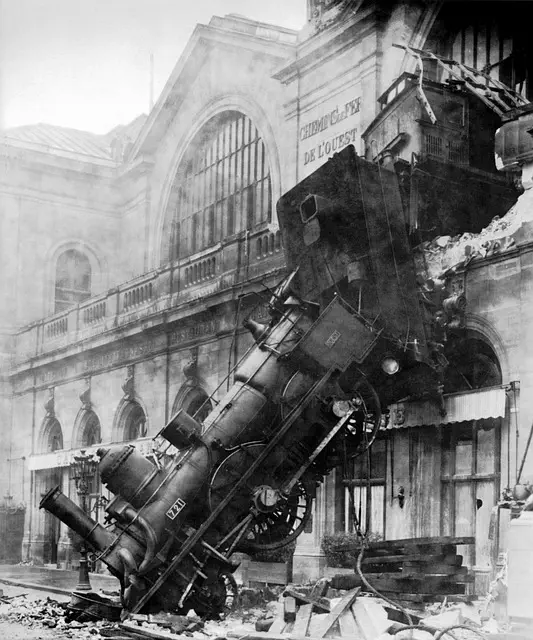In New York City, where motorcycle accidents are common due to heavy traffic, rideshare safety litigation is complex, focusing on negligence, vehicle maintenance, and third-party liability. Companies like Uber and Lyft can be held accountable for driver behavior under specific conditions, with key factors including control over drivers and the nature of their work at the time of the accident. Establishing negligence is critical in motorcycle accident lawsuits, considering speed, weather, road hazards, and actions of all parties. To navigate this process successfully, victims should gather comprehensive evidence, consult experienced legal counsel specializing in rideshare safety litigation, and be aware of contributory negligence laws to ensure proper documentation and compensation within legal deadlines.
“In New York City, motorcycle accidents can have devastating consequences, leading many riders to seek justice through lawsuits. Understanding the legal process, especially in the context of rideshare companies, is crucial for those injured in these crashes. This article delves into the intricacies of motorcycle accident lawsuits in NYC, focusing on liability, negligence, and the unique challenges of rideshare safety litigation. By exploring these key aspects, we aim to equip riders with knowledge to navigate their legal options effectively.”
- Understanding Motorcycle Accident Lawsuits in NYC
- Who is Liable: Rideshare Companies vs. Drivers
- The Role of Negligence and Contributory Negligence
- Navigating the Legal Process for Rideshare Safety Litigation
Understanding Motorcycle Accident Lawsuits in NYC

In New York City, motorcycle accidents can lead to severe injuries and significant legal ramifications. Understanding motorcycle accident lawsuits involves grasping the unique dynamics of urban riding and the legal framework that governs them. NYC’s bustling streets and heavy traffic, including rideshare services, create a complex environment for motorcyclists, leading to an increased risk of collisions.
Motorcycle Accident Lawsuits in NYC often involve complex legal strategies, focusing on issues like driver negligence, vehicle maintenance, and liability for third parties. Rideshare Safety Litigation is a growing area of concern, as rideshare companies face scrutiny over their drivers’ behavior and the safety of their vehicles. Motorcyclists injured in accidents with rideshare vehicles may have grounds for legal action if the driver was negligent or the company failed to maintain proper safety standards.
Who is Liable: Rideshare Companies vs. Drivers

In New York City, determining liability in motorcycle accidents involving rideshare companies is a complex matter. While rideshare drivers are independent contractors, rideshare companies like Uber and Lyft have been held legally responsible for their employees’ actions under certain circumstances. In cases of negligence or wrongful death, victims may pursue rideshare safety litigation against these companies if the driver’s behavior was linked to the accident.
The liability often rests on factors such as the level of control the rideshare company exerts over the driver and whether the driver was engaged in their work at the time of the incident. As the legal landscape evolves, understanding the responsibility of both drivers and companies is crucial for victims navigating rideshare safety litigation in NYC.
The Role of Negligence and Contributory Negligence

In motorcycle accident lawsuits in NYC, establishing negligence is paramount. Negligence occurs when a rider or driver fails to exercise reasonable care, leading to an avoidable harm, such as a collision. This includes violations of traffic laws, reckless driving, and disregard for safety protocols. When proving negligence, legal experts consider various factors like speed, weather conditions, road hazards, and the actions of all parties involved—motorcyclists, drivers, and even rideshare companies.
Contributory negligence is a significant legal concept to understand in these cases. It posits that if a plaintiff was partially at fault for the accident, they may not receive full compensation. For instance, a motorcyclist who ignores a red light and collides with another vehicle might be found partly negligent, reducing their potential lawsuit payout. Rideshare safety litigation often involves examining driver training, vehicle maintenance, and passenger safety measures to determine liability in such cases of contributory negligence.
Navigating the Legal Process for Rideshare Safety Litigation

Navigating the legal process for rideshare safety litigation can be complex, especially in a bustling metropolis like New York City. When dealing with motorcycle accidents involving ride-sharing services, understanding your rights and the legal framework is paramount. The first step is to gather comprehensive evidence, including medical records, police reports, and any available technology data from the ride-sharing company, such as GPS logs or surveillance footage. This evidence forms the backbone of your case.
In New York City, rideshare safety litigation often involves strict liability laws and personal injury claims. You’ll need to prove that the driver was negligent in their duty of care, and that this negligence directly led to your motorcycle accident. Engaging experienced legal counsel who specialize in motorcycle accidents and rideshare safety litigation is crucial. They can help guide you through the intricate legal process, ensuring all necessary documents are filed within the statutory deadlines and effectively advocating for your rights to compensation.
Motorcycle accidents in NYC can lead to severe injuries and emotional trauma, making understanding your legal rights under rideshare safety litigation crucial. Recognizing liability among rideshare companies and drivers, comprehending negligence principles, and navigating the legal process are essential steps towards justice and compensation. By delving into these aspects, victims can ensure they receive fair redress for their suffering, ultimately fostering safer riding conditions in the city.
